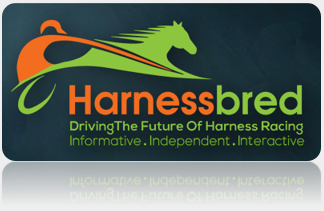 * The ATC will boost stakes by $1.3million for next season, starting August 1.
* The ATC will boost stakes by $1.3million for next season, starting August 1.
* They then plan to add another $40,000 per meeting the following season.
* The club’s goal is to race for $30,000 minimum stakes inside five years.
By Michael Guerin
Just months after announcing some of the largest stake increases in harness racing history the Auckland Trotting Club has decided they are not big enough.
So the home of northern harness racing has decided to hit harder and sooner, with an ambitious plan to try and nearly double stakes inside four years.
The ATC were planning on a major stake boost at the start of the 2018-19 season — 13 months away — but that has been increased and brought forward to the start of the new season August 1.
The club will pour $1.3million more into stakes next season, meaning no race at Alexandra Park next year will be for less than $12,000.
That is already the benchmark for most grades of races but the club has often run two conditioned races on their cards as they struggle for horse numbers, with those run at a lesser stake.
“But they will go up to $12,000 now too, so basically a normal Friday night meeting next season will see a stakes range from $12,000 to 17,000,” says ATC president Bruce Carter.
On top of that HRNZ will pay a $1500 bonus to all maiden winners, meaning a maiden win at Alexandra Park next season will be worth at least $7500.
“We are also putting $90,000 into boosting some of the group two and three races, particularly races like the National Trot and Trotting Derby because owners have rightly suggested the trotters deserve more respect.”
While a $1.3millon boost to a $12,000 minimum across the board sounds great, it is what happens next that will should really make the club the envy of harness administrators around the country.
The following season the ATC will boost stakes again by $40,000 per meeting, or on average $4000 per race with the very real possibility they could do the same thing the season after.
“We will go to the $12,000 minimum for all races in a few weeks but the $40,000 per meeting will come on top of that the next season when we see completion of the first of our real estate developments,” says Carter.
“The board have agreed to spending a chunk of that money on stakes so we will just need to work out how we do that.”
With maidens worth $12,000, a $4000 boost would take them to $16,000, unheard of anywhere in Australasia.
But that could cause a somewhat welcome problem in that any horse winning a race more than $14,999 gets a metropolitan penalty in Australia, meaning if Alexandra Park maidens go to $15,000 they could make winners harder to sell.
“So we will look at that, it might be maidens rise to $14,999 and then most other grades of races at $18,000 or even $20,000,” said Carter.
“We are aware of concerns about the export market but we want to make stakes so good owners don’t want to sell their horses.” Carter says the $20,000 base stake for anything but maidens is realistic in two years as the ATC continues its property developments and if the NZ Racing Board is able to deliver its forecast increases in profit from better betting platforms and the Race Fields legislation.
NZRB and ATC board member Rod Croon says the two increased revenue streams together — TAB funding and the huge property developments ongoing at Alexandra Park — should see stake increases for four years running.
“There are economic factors there that have to pan out the way the way they are expected but if they do our dream goal is to have every Friday night race at Alexandra Park in four years worth around $30,000,” says Croon.
“That is realistic on the figures we are working on.”
While the increases are hard to comprehend and start to rival the best galloping stakes in New Zealand, the ATC has upset some trainers by deciding to do away with the $150 per starter fee paid to trainers, although owners will still be guaranteed up to two per cent of the stake for starters who finished down the track.
“The over-whelming opinion from owners we spoke to is that the wanted money to go into stakes,” says Carter.
“So we are pouring as much money as we can into stakes, to attract owners, which can only help trainers and make the industry more sustainable.”

Approved By Dean Baring www.harnessbred.com
Driving The Future Of Harness Racing

